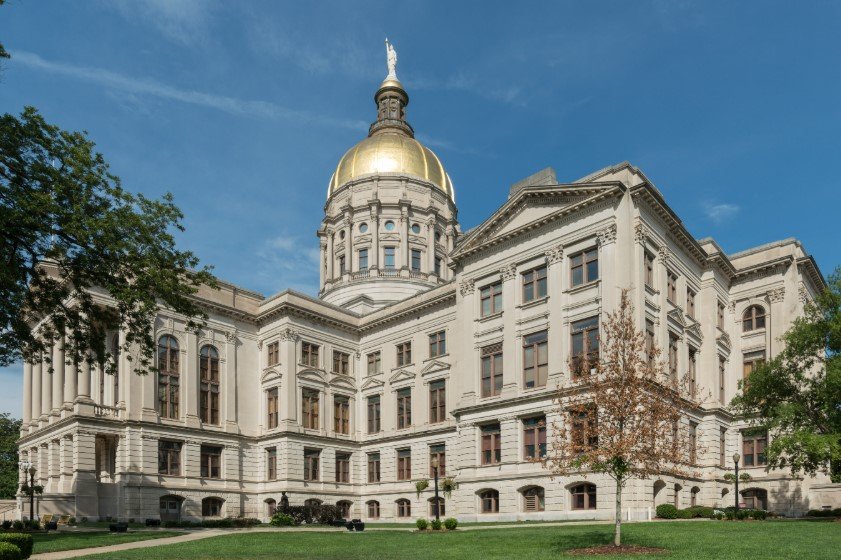State panel revisits casino and sports betting proposals, hoping tax windfalls can fund education and infrastructure—but old political divides remain
Georgia lawmakers are back at it—talking, again, about legal gambling.
With billions on the table and tax coffers squeezed by inflation and infrastructure needs, a bipartisan panel is weighing whether 2025 might finally be the year Georgia gives casinos and sports betting the green light.
The idea isn’t new. The urgency, however, is.
Chasing the Same Jackpot—But This Time Feels Different
Georgia’s flirtation with legalized gambling goes back years. Bills have been floated. Hearings have been held. Lobbyists have worked the Capitol. But efforts have always crumbled under pressure—usually from religious groups and conservative lawmakers who say the social costs just aren’t worth the risk.
This time, though, the math is hard to ignore.
The House Study Committee on the Economic Impact of Legalized Gambling held its first major meeting this week, with lawmakers zeroing in on how other states—Tennessee, Virginia, Florida—have cashed in.
Just one sentence here.
“We’re losing hundreds of millions every year to our neighbors,” said Rep. Ron Stephens (R-Savannah), a longtime gambling advocate. “People are crossing state lines, and we’re left empty-handed.”

Numbers, Not Just Hype
Stephens isn’t wrong. According to the American Gaming Association, legal sports betting alone brought in more than $10 billion in tax revenue nationwide in 2024. Georgia, which has no casinos or licensed sportsbooks, got none of it.
Here’s how nearby states are doing:
| State | Gambling Legalization Year | 2024 Tax Revenue (Est.) | Notes |
|---|---|---|---|
| Tennessee | 2020 | $115 million | Mobile sports betting only |
| North Carolina | 2023 | $85 million | Casinos and online betting |
| Florida | 2023 | $170 million | Compact with Seminole Tribe |
| Georgia | — | $0 | Horse racing only, no betting |
That kind of data lands differently in a year when the state budget is feeling tight and infrastructure headaches—from traffic congestion to aging school buildings—keep piling up.
Who Wants In, Who Wants Out
Not surprisingly, the debate is attracting a colorful mix of characters: church leaders, casino lobbyists, educators, pro sports franchises, and anti-addiction counselors.
Here’s what’s emerging so far:
-
Supporters argue it’s a win-win: keep money in Georgia, regulate what’s already happening underground, and dedicate funds to public education or healthcare.
-
Opponents warn of gambling addiction, bankruptcy, and predatory business practices targeting poor communities.
And then there are the “undecideds,” who worry about the politics more than the principle.
“This issue cuts across party lines,” said state Sen. Elena Parent (D-Atlanta). “It’s not just blue vs red—it’s moral conservatism vs fiscal pragmatism.”
Basically, nobody’s comfortable, and that’s what makes it interesting.
Not Just Vegas-Style Casinos Anymore
It’s easy to picture roulette tables and slot machines, but Georgia’s current focus is a bit narrower. Lawmakers are looking more seriously at online sports betting and possibly limited resort-style casinos, rather than going full Vegas.
Rep. Marcus Wiedower (R-Watkinsville) noted that mobile sportsbooks would be the easiest to implement—and already have an existing audience.
Just a one-liner now.
Georgia is home to major college football programs and four pro teams. Betting interest is already huge—just not legal.
Where the Money Would Go
One of the biggest debates isn’t about whether to legalize gambling—it’s about what to do with the revenue.
Some lawmakers want it earmarked for education, like the HOPE Scholarship. Others want a slice for rural broadband, transportation, or healthcare.
Here’s what a few proposals suggest:
-
50% of tax revenue goes to HOPE and pre-K programs
-
25% directed to rural infrastructure development
-
15% for addiction counseling and prevention
-
10% to general state budget relief
That last bit—unrestricted revenue—makes watchdog groups nervous. Critics worry that without strong guardrails, the money could vanish into pork projects or politically expedient spending.
And yes, that fear’s well-founded.
The Church vs. The Chamber
One of the most consistent—and vocal—forces against gambling in Georgia has been the religious right. Faith leaders argue that no amount of tax dollars is worth the human toll.
They’re already mobilizing.
Bishop Stephen Hall of South Metro Ministries warned during a recent prayer breakfast that casinos are a “Trojan horse for broken families.”
The Georgia Chamber of Commerce, however, sees things differently. In a statement, it urged lawmakers to “consider the economic competitiveness of Georgia’s hospitality and tourism sectors.”
Translation: let’s not let Alabama beat us to it.
So Will It Actually Happen?
That’s the million-dollar question. Or maybe billion.
Legalizing gambling in Georgia requires a constitutional amendment—which means two-thirds support in both chambers and a statewide voter referendum.
It’s a heavy lift.
In 2024, a sports betting bill cleared a Senate committee but stalled before reaching a floor vote. House Republicans remain divided, and Gov. Brian Kemp hasn’t offered much clarity, saying only that he’s “not opposed” if it’s what Georgians want.
